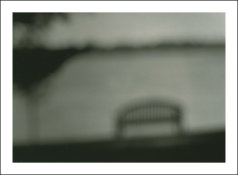Q.G.
Member
I think it a non-question.
Anxiety doesn't come into it. Only common sense.
If i want to record the smile on someone's face, i don't want to end up with a fuzzy blur that leaves me guessing whether the person was smiling or frowning.
Same for any other subject.
Having equipment and techniques at our disposal that can indeed deliver the level of sharpness we want, we can always get less sharpness. If and when we wish.
If all we have are equipment and techniques that cannot deliver the needed sharpness, we're up the proverbial stream of brown smelly stuff.
So guess what would be the sensible thing to look for.
Anxiety doesn't come into it. Only common sense.
If i want to record the smile on someone's face, i don't want to end up with a fuzzy blur that leaves me guessing whether the person was smiling or frowning.
Same for any other subject.
Having equipment and techniques at our disposal that can indeed deliver the level of sharpness we want, we can always get less sharpness. If and when we wish.
If all we have are equipment and techniques that cannot deliver the needed sharpness, we're up the proverbial stream of brown smelly stuff.
So guess what would be the sensible thing to look for.














